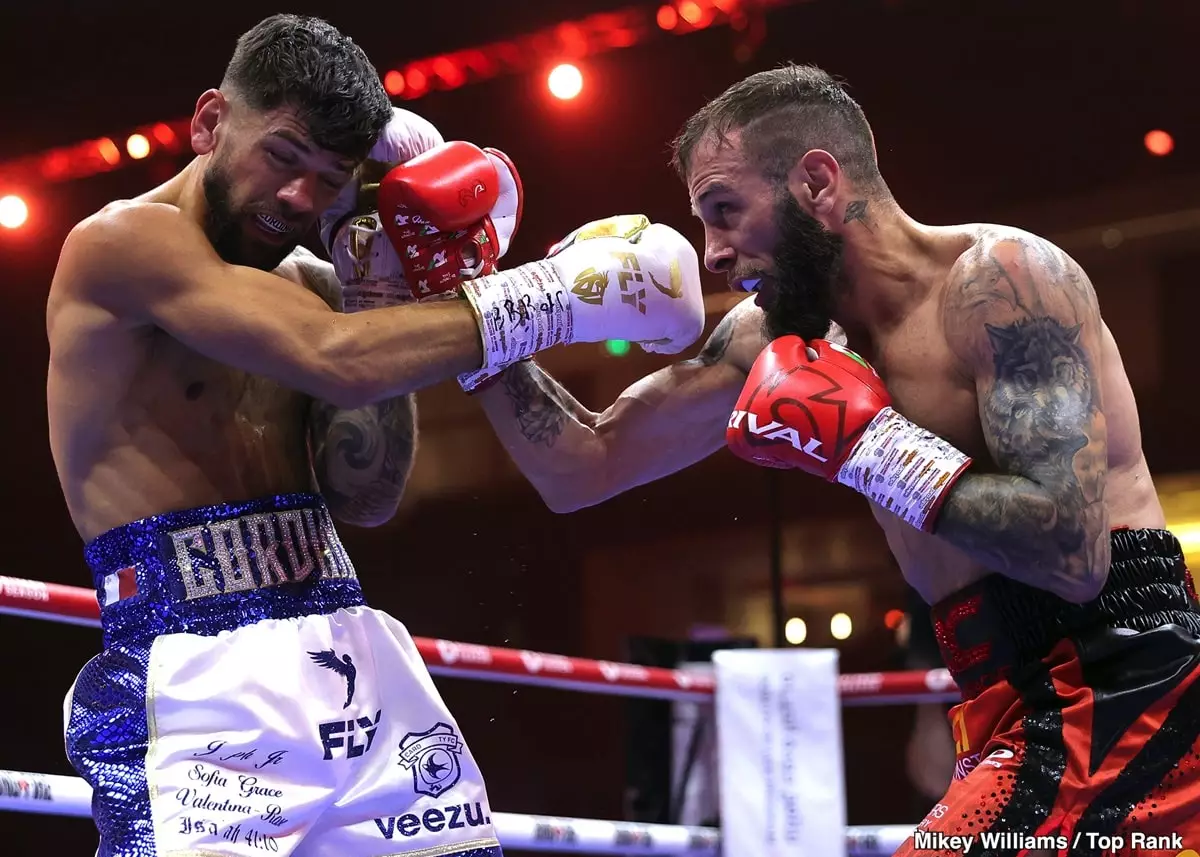Boxing, renowned for its intense rivalries and the spirit of competition, often finds itself in turbulent waters amid mismatches and unfulfilled expectations. A recent incident involving promoter Eddie Hearn and boxer Anthony Cacace has illuminated the underlying tensions within the sport, particularly around title defenses, fighter ambitions, and the volatile nature of promotional relationships. Cacace’s decision to vacate his IBF super featherweight title instead of defending it against mandatory challenger Eduardo ‘Sugar’ Nunez has caused ripples in the boxing community, provoking outcries from fans and promoters alike.
Eddie Hearn, a significant figure in boxing promotion, expressed his disappointment candidly. Calling the situation “sickening,” he highlighted that Cacace’s vacating of the title occurred months prior, describing it as a blatant ducking of Nunez. Hearn’s remarks underscore the emotional investment promoters have in their fighters and the conflicts that arise when business decisions clash with competitive integrity. He characterized Cacace’s actions as not only detrimental to Nunez’s career but detrimental to the spirit of the division itself.
The crux of Hearn’s frustration lies in the fact that Cacace, who holds an impressive resume, has failed to defend his world title. Hearn reiterated that becoming a champion should come with the obligation to defend the belt against challengers, advocating for a more gallant approach to maintaining one’s status in boxing. His sentiments resonate with many in the sport, who expect champions to face off against worthy opponents, thereby preserving the essence of competition.
From Cacace’s perspective, the decision to vacate the IBF title in favor of a fight with former WBA featherweight champion Leigh Wood is strategic, albeit controversial. Faced with a formidable opponent in Nunez—a fighter with an unblemished knockout record—Cacace opted for a match that promises greater financial benefit and perhaps a more favorable risk-reward ratio. This choice exposes a fundamental aspect of modern boxing: the increasing prioritization of financial security over traditional notions of championship pride.
Despite resigning his title, Cacace has asserted that his ambitions extend beyond merely holding belts. In his own words, he emphasizes the importance of securing his family’s future and etching a lasting legacy in the sport. However, this narrative raises questions about the ethical responsibilities of champions. Should titles be held to serve the greater good of the sport, or should fighters prioritize personal gains above all?
Hearn’s disdain for the situation reflects a broader dilemma within boxing promotions: the struggle to balance fighter management, fan expectations, and promotional viability. Hearn’s passion for cultivating talent and creating matchups that resonate with audiences clashes with the often self-serving decisions made by fighters seeking advantageous paydays. His frustration also shines a light on the unpredictability of relationships between promoters and fighters, who may prioritize individual career trajectories over loyalty to titles.
Furthermore, the impending match between Cacace and Wood, while commercially viable in the British market, raises concerns about the broader impact on boxing’s global appeal. International audiences may perceive many domestic bouts as disengaging, leading to a disconnect that can harm the sport’s overall reputation. Hearn’s acknowledgment of this disconnect suggests that boxing promotions must evolve to cater to a diverse audience while nurturing domestic talent.
The rift between Eddie Hearn and Anthony Cacace illuminates the multifaceted challenges in professional boxing today. Cacace’s choice to vacate the IBF title, though financially prudent, may come at the cost of his reputation and the integrity of the sport. Meanwhile, Hearn’s passionate defense of Nunez showcases the role of promoters in advocating for competitive fairness. Ultimately, as boxing continues to evolve, striking a balance between personal ambition and the spirit of competition remains vital for its growth and sustainability. The actions taken today will reverberate throughout the sport’s fabric, reminding all involved of the importance of legacy and honor in the ring.

